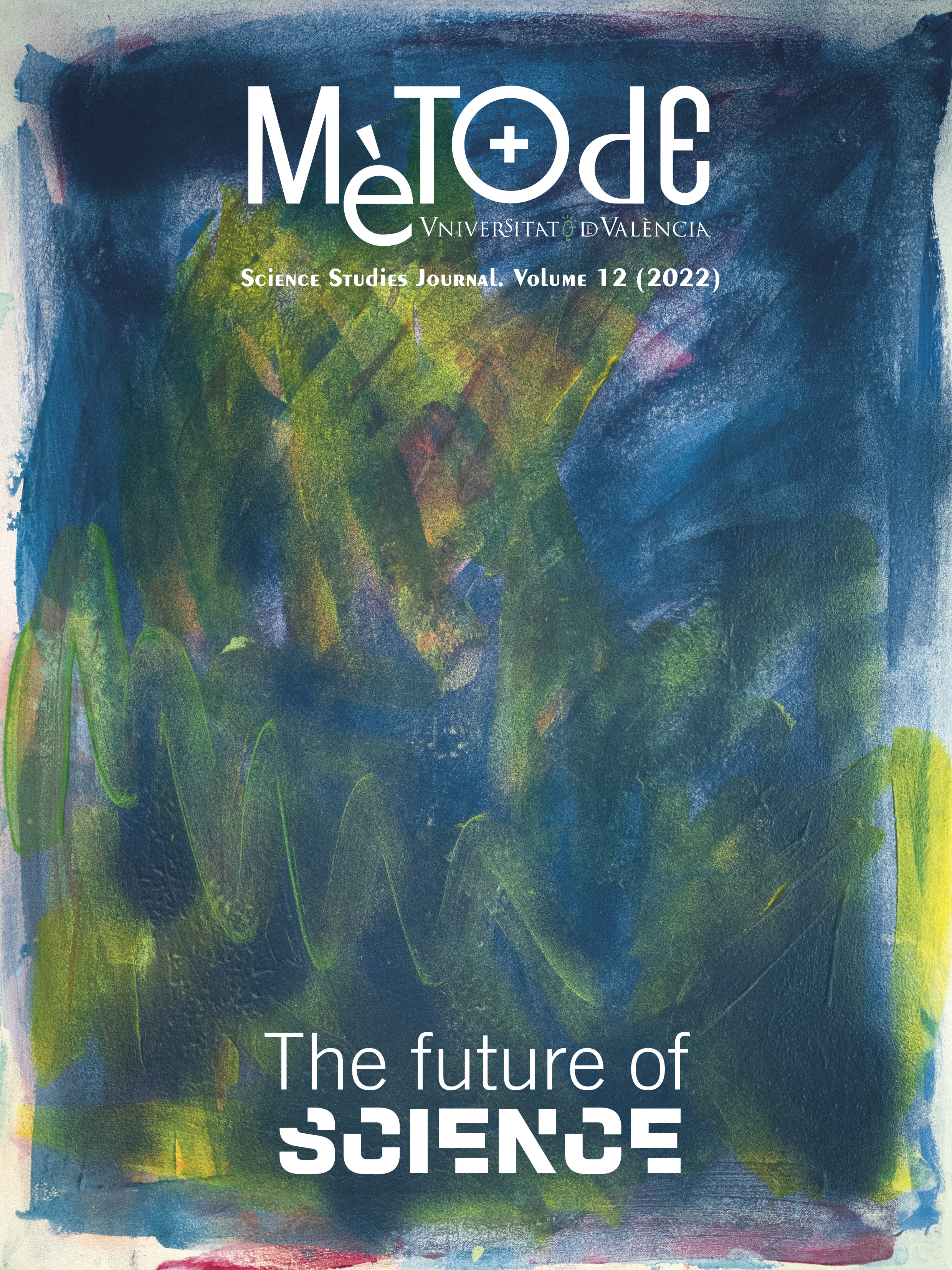COVID-19 and climate change: Challenges or opportunities for economic recovery
DOI:
https://doi.org/10.7203/metode.12.18946Keywords:
economics, climate change, emissions, COVID-19 Abstract
Abstract
The paper reviews the impact that COVID-19 has had on the ambitions of countries to meet the Paris Accord of reducing emissions to keep global temperature increases to below 2 ºC in this century. It notes that as nations recover from the crises, if no additional measures are taken, emissions of greenhouse gases will rise again and return to their old pathway as they did after previous crises. The paper proposes actions in the short and medium terms to build back differently this time and help meet the global climate challenge.
 Downloads
Downloads
 References
References
Agrawala, S., Dussaux, D., & Monti, N. (2020). What policies for greening the crisis response and economic recovery? Lessons learned from past green stimulus measures and implications for the COVID-19 crisis. OECD Environment Working Papers, 164. https://doi.org/10.1787/c50f186f-en
Barbier, E. B. (2020) Greening the post-pandemic recovery in the G20. Environmental and Resource Economics, 76, 685–703. https://doi.org/10.1007/s10640-020-00437-w
BBC. (2020, October 5). Home working here to stay, study of businesses suggests. BBC News. https://www.bbc.co.uk/news/business-54413214
BloombergNEF. (2020, May 13). Gridlock in Beijing as Communiter Shun Public Transport. Bloomberg NEF. https://about.bnef.com/blog/gridlock-in-beijing-as-commuters-shun-public-transport/
Blundell, R., Joyce, R., Costa Dias, M., & Xu, X. (2020, June 11). Covid-19: The impacts of the pandemic on inequality. Institute for Fiscal Studies. Retrieved October 9, 2020, from https://www.ifs.org.uk/publications/14879
Borghesi, S. (2020, April 8). COVID-19, climate policy and carbon markets. LIFE DICET project. https://lifedicetproject.eui.eu/2020/04/08/covid-19-climate-policy-and-carbon-markets/
Costa Figueira, J. (2020, June 2). Over 200 British firms urge government to align economic recovery with net zero goal. Climate Action. https://www.climateaction.org/news/over-200-british-firms-urge-government-to-align-economic-recovery-with-net
Furceri, D., Loungani, P., Ostry, J. D., & Pizzuto, P. (2020, May 8). COVID-19 will raise inequality if past pandemics are a guide. VoxEU. https://voxeu.org/article/covid-19-will-raise-inequality-if-past-pandemics-are-guide
Global Carbon Project. (2020). Carbon budget 2020. An annual update of the global carbon budget and trends. https://www.globalcarbonproject.org/carbonbudget/
Global Workplace Analytics. (2020). Work-at-home after COVID-19–Our forecast. https://globalworkplaceanalytics.com/work-at-home-after-covid-19-our-forecast
Gottlieb, C., Grobovšek, J., Poschke, M., & Saltiel, F. (2020). Working from home: Implications for developing countries. In S. Djankov & U. Panizza (Eds). COVID-19 in developing economies. CEPR Press. https://voxeu.org/content/covid-19-developing-economies
Hainsch, K., Brauers, H., Burandt, T., Göke, L., Von Hirschhausen, C., Kemfert, C., Kendziorski, M., Löffler, K., Oei, P.-Y., Präger, F., & Wealer, B. (2020). Make the European Green Deal real – Combining climate neutrality and economy recovery. Deutsches Institut für Wirtschaftsforschung.
Hepburn, C., O’Callaghan, B., Stern, N., Stiglitz, J., & Zenghelis, D. (2020). Will COVID-19 fiscal recovery packages accelerate or retard progress on climate change? Oxford Review of Economic Policy, 36(1), S359–S381. https://doi.org/10.1093/oxrep/graa015
IEA. (2020). The Covid-19 crisis and clean energy progress. In Tracking clean energy process. IEA. https://www.iea.org/reports/the-covid-19-crisis-and-clean-energy-progress/buildings
International Resource Panel. (2020). Building resilient societies after the COVID-19 pandemic. Key messages from the International Resource Panel. UN Environment Programme. https://www.resourcepanel.org/sites/default/files/documents/document/media/building_resilient_societies_after_the_covid-19_pandemic_-_key_messages_from_the_irp_-_12_may_2020.pdf
Le Quéré, C., Jackson, R. B., Jones, M. W., Smith, A. J. P., Abernethy, S., Andrew, R. M., De-Gol, A. J., Willis, D. R., Shan, Y., Canadell, J. G., Friedlingstein, P., Creutzig, F., & Peters, G. P. (2020a). Temporary reduction in daily global CO2 emissions during the COVID-19 forced confinement. Nature Climate Change, 10, 647–653. https://doi.org/10.1038/s41558-020-0797-x
Le Quéré, C., Jackson, R., Jones, M., Smith, A., Abernethy, S., Andrew, R., De-Gol, A., Shan, Y., Canadell, J., Friedlingstein, P., Creutzig, F., & Peters, G. (2020b). Supplementary data to: Le Quéré et al (2020), Temporary reduction in daily global CO2 emissions during the COVID-19 forced confinement (Version 1.3). Global Carbon Project. https://doi.org/10.18160/RQDW-BTJU
Oldekop, J. A., Horner, R., Hulme, D., Adhikari, R., Agarwal, B., Alford, M., Bakewell, O., Banks, N., Barrientos, S., Bastia, T., Bebbington, A. J., Das, U., Dimova, R., Duncombe, R., Enns, C., Fielding, D., Foster, C., Frederiksen, T., Gao, P. … Zhang, Y. (2020). COVID-19 and the case for global development. World Development, 134, 105044. https://doi.org/10.1016/j.worlddev.2020.105044
Stiglitz, J. (2020, 2 july). Invest in the green economy and we’ll recover from the Covid-19 crisis. The Guardian. https://www.theguardian.com/business/2020/jul/02/invest-in-the-green-economy-and-well-recover-from-the-covid-19-crisis
Strand, J., & Toman, M. (2010). “Green stimulus”, economic recovery, and long-term sustainable development. Policy Research Working Paper; No. 5163. World Bank. https://openknowledge.worldbank.org/handle/10986/19956
United Nations Environment Programme. (2019). Emissions gap report 2019. UNEP. https://wedocs.unep.org/bitstream/handle/20.500.11822/
30797/EGR2019.pdf?sequence=1&isAllowed=y
World Health Organization. (2021). WHO Coronavirus Disease (COVID-19) Dashboard. WHO Health Emergency Dashboard. Retrieved May 10, 2021, from https://covid19.who.int/
Downloads
Published
How to Cite
-
Abstract1578
-
PDF763
Issue
Section
License
![]()
All the documents in the OJS platform are open access and property of their respective authors.
Authors publishing in the journal agree to the following terms:
- Authors keep the rights and guarantee Metode Science Studies Journal the right to be the first publication of the document, licensed under a Creative Commons Attribution-NonCommercial-NoDerivatives 4.0 International License that allows others to share the work with an acknowledgement of authorship and publication in the journal.
- Authors are allowed and encouraged to spread their work through electronic means using personal or institutional websites (institutional open archives, personal websites or professional and academic networks profiles) once the text has been published.





